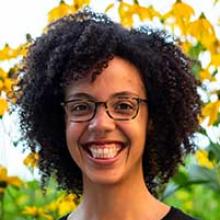Do Social and Emotional Learning Programming and Strategies Work for All Students? A Participatory Evidence Synthesis
A key component to creating equitable learning environments is ensuring that youth feel safe and included in their schools. One avenue for fostering equitable, safe, and supportive learning environments is the cultivation of young people’s social and emotional learning (SEL) competencies. Evidence suggests that increasing young people’s SEL competencies can improve behavioral, academic, and life outcomes.
SEL programs and strategies have been critiqued, however, for failing to attend to contexts of inequity, which has stymied their ability to “mitigate the educational, social, and economic inequities that derive from the interrelated legacies of racialized cultural oppression in the United States and globally.” As a result, concerned scholars and SEL advocates have called on education stakeholders to partner with those from nondominant cultures and backgrounds to develop new programs, adapt existing programs, and conduct research that centers race and place.
AIR's Research Synthesis
AIR has brought together a team of experts in SEL, school violence prevention, and research synthesis to understand the landscape of SEL evidence using an equity lens. In collaboration with the Methods of Synthesis and Integration Center (MOSAIC) at AIR, Dr. Dorothy L. Espelage, William C. Friday Distinguished Professor of Education at the University of North Carolina, is leading a team of undergraduate and graduate students.
AIR has also partnered with three leading thinkers in the SEL space: Dr. Aijah Baruti-Goodwin, a postdoctoral fellow at the National Center for School Mental Health; Dr. Robert Jagers, Vice President of Research at the Collaborative for Academic, Social, and Emotional Learning; and, Eric Moore, Senior Advisor to the Superintendent at Minneapolis Public Schools. Most recently, AIR has expanded this partnership to include the Education Collaboratory at Yale, directed by Dr. Christina Cipriano.
Our project hopes to answer four questions:
- To what extent have SEL evaluations examined the effect of SEL programs and strategies on social and behavioral outcomes for youth who have been systematically marginalized because of their race (e.g., Black, Latino, Asian, Indigenous youth)?
- What are the average effects of SEL programs and strategies on social and behavioral outcomes for youth who have been systematically marginalized because of their race (e.g., Black, Latino, Asian, Indigenous youth)?
- How do effects of SEL programs that include a core component designed to address specific systematically marginalized populations compare with those of programs that do not include this core component?
- What practices and processes must the field of research synthesis address to work collaboratively with community members and individuals with lived experiences?
Next Steps
We anticipate conducting a large-scale systematic review and meta-analysis that uses participatory research approaches, which is an innovative design within the quantitative synthesis field. We aim to produce materials that will add value to the existing repertoire of professional educators, school mental health providers, and district administrators.

